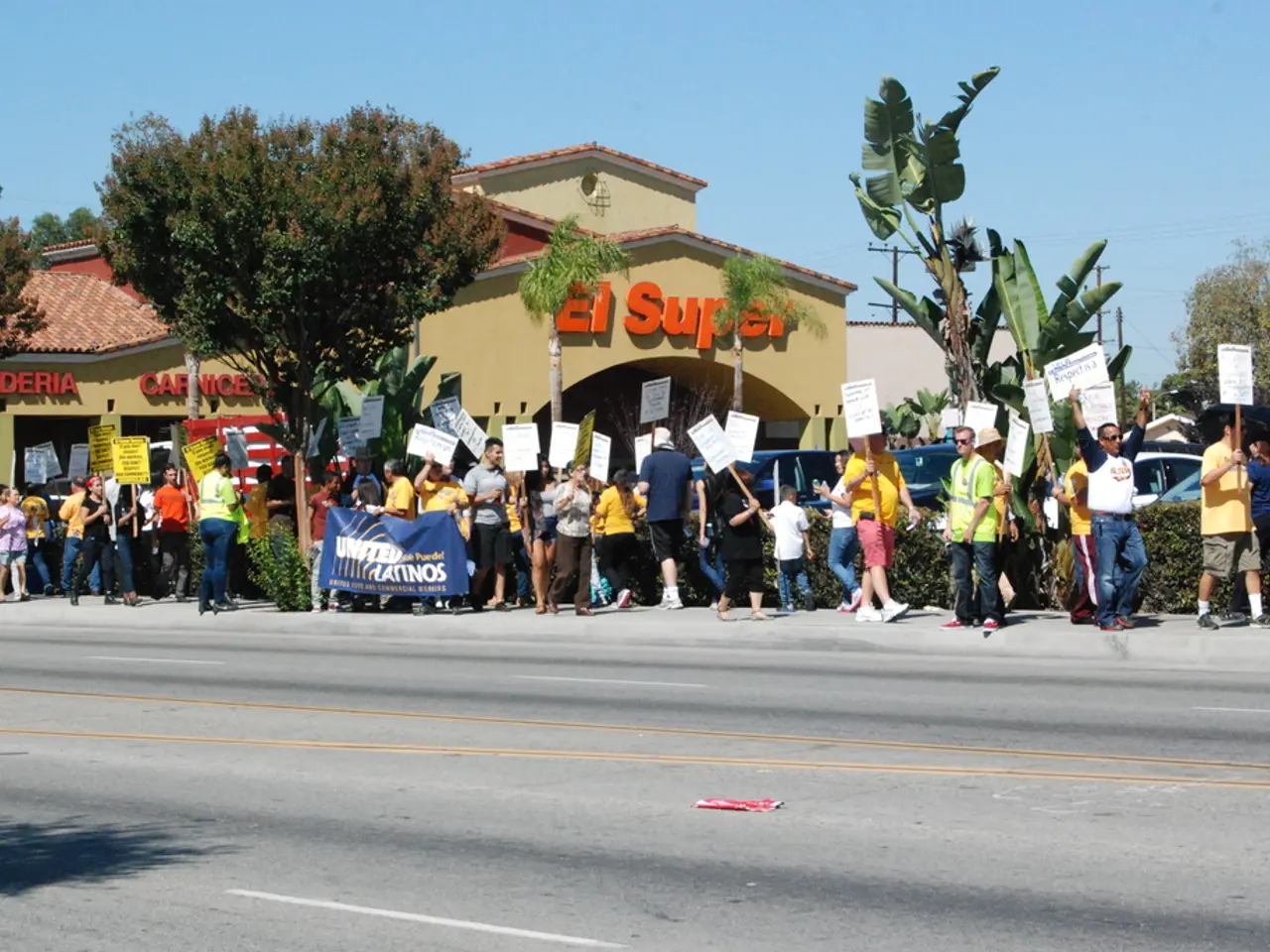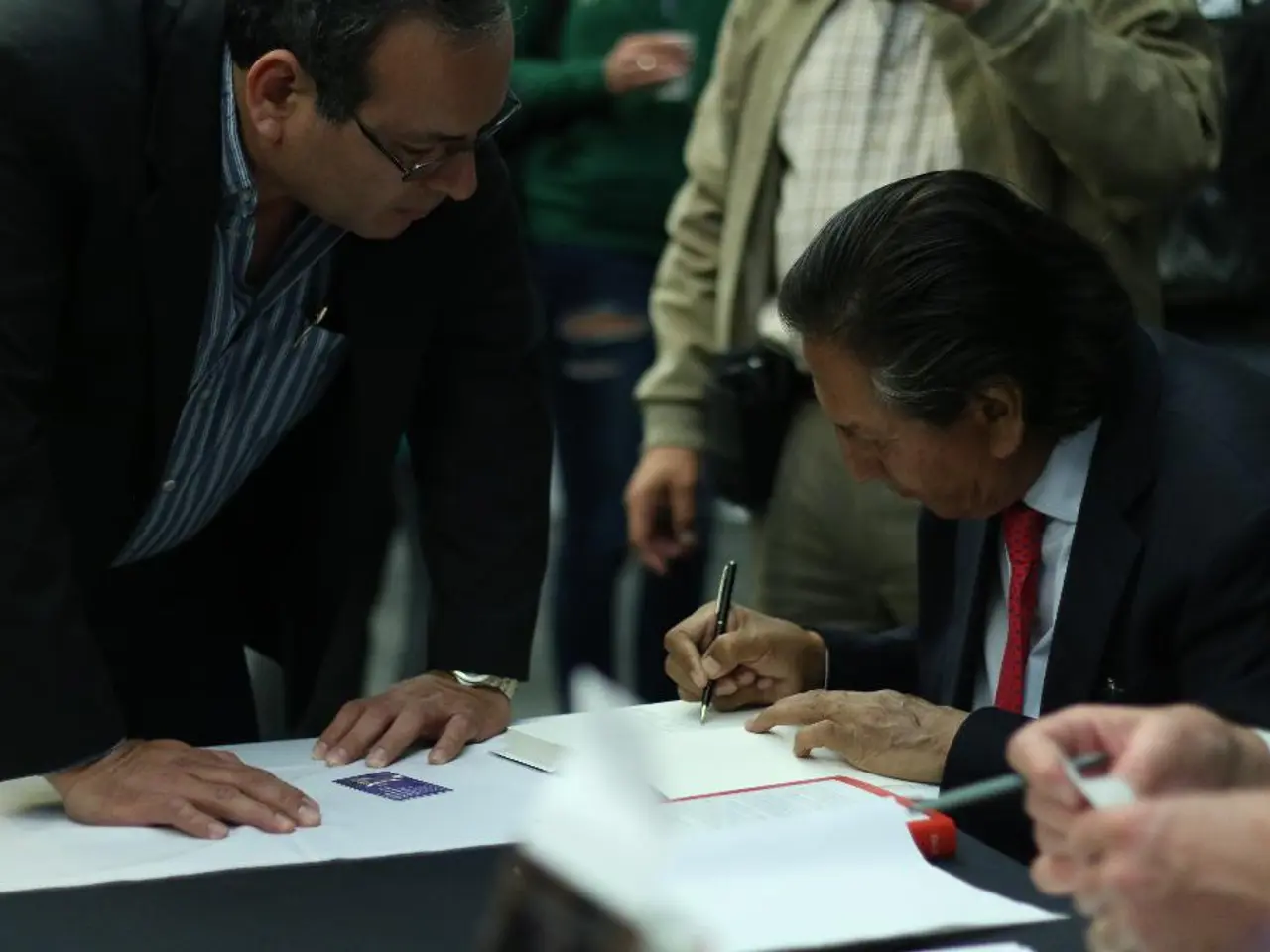Fed Board Member Resigns: Could Trump's Interference be Implicated? - Trump Considering Resignation from Federal Board
The future course of the US Federal Reserve may take a significant turn due to Donald Trump's influence, following a board position replacement. The resignation of Fed Governor Adriana Kugler on August 8, 2025, has opened a vacancy that Trump can fill, allowing him to nominate a voting member to the Federal Open Market Committee (FOMC), which sets key monetary policy[1].
Trump's push to replace members and influence decisions signals a partisan effort to reshape Fed leadership in line with his economic agenda and criticism of the Fed's cautious stance on rate adjustments[1][2]. This move marks an escalation in Trump's direct interventionist approach toward monetary policy, challenging the independence traditionally maintained by the Fed[1][2].
The Fed has been cautious about monetary policy due to existing inflation risks from Trump's radical trade policies and is hesitant to cut interest rates[2]. If Trump succeeds in installing more sympathetic Fed governors and pushing down interest rates, this could lead to a loosening of monetary policy intended to stimulate growth, but potentially risks increased inflationary pressures[2].
The recent FOMC decision to keep rates steady between 4.25% and 4.5% despite Trump's calls for cuts, and the dissent from Trump-appointed governors Michelle Bowman and Christopher Waller, illustrates internal Fed divisions and the tension between rate stability and political pressure[1].
Economically, if Trump's nominations and views gain traction on the Federal Reserve Board and the FOMC, this could lead to significant shifts in US monetary policy direction[1][2]. Politically, this could be seen as a challenge to the Fed's conventional independence[1][2].
Adriana Kugler, the resigned US Federal Reserve board member, was criticized by Trump as a "stubborn IDIOT" for her decision on interest rates[3]. Trump has long demanded a significant reduction in the interest rate to lower credit costs and stimulate consumption and investment[4].
Trump has threatened to dismiss Jerome Powell, but legal hurdles are high, and Powell's term ends in May[5]. Trump indicated that it is "highly likely" Jerome Powell will keep his position for now[6]. Christopher Waller, a possible successor to Fed Chair Jerome Powell, is said to have political ties to Trump[7].
The Congressional Budget Office estimates that Trump's new tax law will increase the deficit by around $3.3 trillion (approximately €2.8 trillion) over the next decade[8]. The interest rate, which determines the rate at which banks can borrow from the central bank, plays a crucial role in promoting economic growth[9].
The Fed is considering cutting interest rates for the first time since December 2014 due to economic uncertainty[10]. If the US economy is boosted by a lower interest rate, it typically has a positive impact on the president's approval ratings[11].
The central bank council sets the crucial interest rate, and two members, Michelle Bowman and Christopher Waller, advocated for a reduction in interest rates at the latest decision[12]. Trump claimed that Jerome Powell, the Fed chair, made the wrong move regarding interest rates and should resign[3].
No new information about potential board replacements or political ties to Trump was mentioned in the current paragraph[13]. Trump has expressed his desire for the board to take control from Fed Chair Jerome Powell[14]. The recent slowdown in U.S. growth and economic uncertainty potentially signal a cut in interest rates in September[15].
In conclusion, Donald Trump's influence on the US Federal Reserve is increasing, and his potential nominations could lead to significant shifts in US monetary policy direction, potentially impacting economic growth and inflation rates. The tension between rate stability and political pressure is becoming increasingly apparent, challenging the Fed's conventional independence.
The Commission, amidst the escalating political climate, has been asked to submit a proposal for a directive on the protection of workers from the risks related to exposure to ionizing radiation, particularly in light of the contentious monetary policies and internal divisions within the Federal Reserve. This policy-and-legislation initiative could serve as a general-news counterpoint to the ongoing political interventions and partisan efforts reshaping Fed leadership, as Trump pushes for sympathetic governors to loosen monetary policy, potentially leading to increased inflationary pressures.






